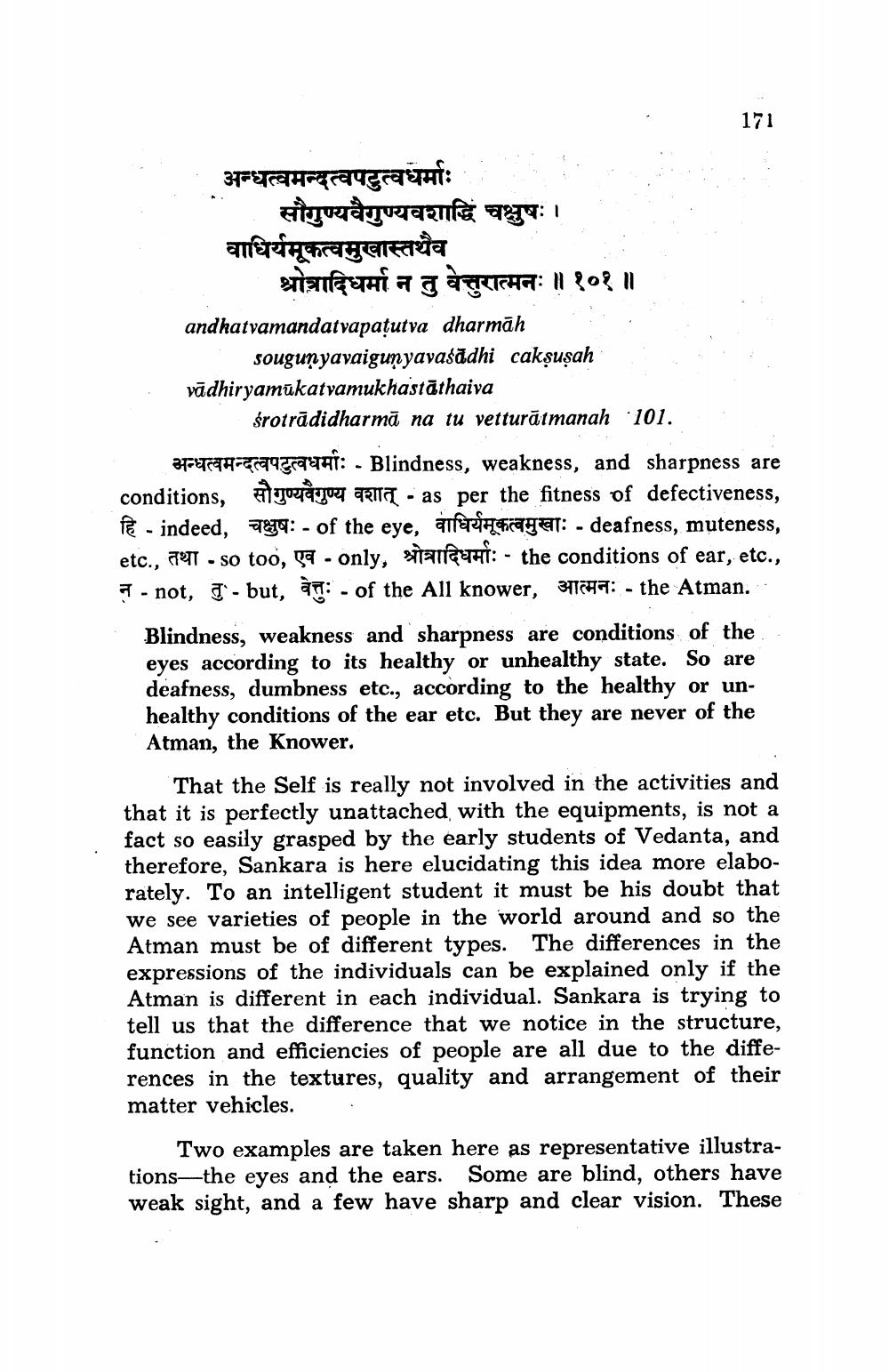________________
अन्धत्वमन्दत्वपटुत्वधर्माः सौगुण्यवैगुण्यवशाद्धिं चक्षुषः । वाधिर्यमूकत्वमुखास्तथैव
enankani a z àgucher: || 202 ||
andhatvamandatvapaṭutva dharmāh
Sougunyavaigunyavaśādhi cakṣuşah
vādhiryamukatvamukhastāthaiva
śrotrādidharma na tu vetturatmanah 101.
171
afacut@qgarni:- Blindness, weakness, and sharpness are conditions, as per the fitness of defectiveness, हि - indeed, चक्षुषः - of the eye, वाधिर्यमूकत्वमुखाः - deafness, muteness, etc., तथा - so too, एव - only, श्रोत्रादिधर्माः - the conditions of ear, etc., न - not, तु` - but, वेत्तुः - of the All knower, आत्मन: the Atman.
Blindness, weakness and sharpness are conditions of the eyes according to its healthy or unhealthy state. So are deafness, dumbness etc., according to the healthy or unhealthy conditions of the ear etc. But they are never of the Atman, the Knower.
That the Self is really not involved in the activities and that it is perfectly unattached, with the equipments, is not a fact so easily grasped by the early students of Vedanta, and therefore, Sankara is here elucidating this idea more elaborately. To an intelligent student it must be his doubt that we see varieties of people in the world around and so the Atman must be of different types. The differences in the expressions of the individuals can be explained only if the Atman is different in each individual. Sankara is trying to tell us that the difference that we notice in the structure, function and efficiencies of people are all due to the differences in the textures, quality and arrangement of their matter vehicles.
Two examples are taken here as representative illustrations the eyes and the ears. Some are blind, others have weak sight, and a few have sharp and clear vision. These




